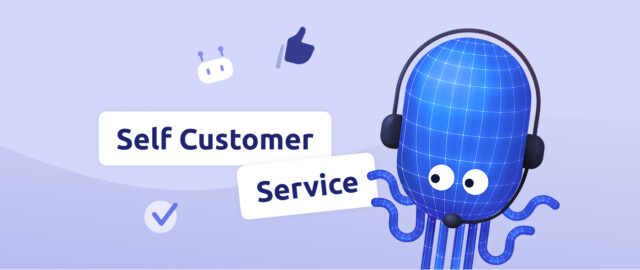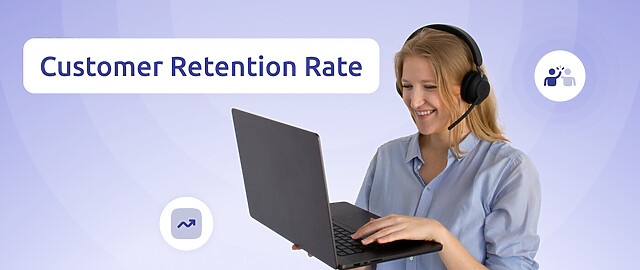What Is Self Customer Service?
A Clear Definition
Self customer service refers to the tools and systems that empower users to handle common requests on their own. It’s a structured approach built around fast, easy access to relevant information. More than just digital support, it’s about enabling customers to solve specific tasks without needing human intervention.
More Than a Simple FAQ
This isn’t your basic help page. Self customer service relies on advanced technology, often integrated with a company’s internal systems. It allows brands to deliver personalized content, answer highly specific questions, or trigger real actions—like updating a subscription plan or checking a delivery status.
A Complement, Not a Replacement
Self customer service doesn’t aim to replace human support—it complements it. It handles simple or repetitive requests upstream, freeing up your support team to focus on high-value interactions. This creates smoother, faster customer journeys and ensures your human agents are focused where they’re most needed.
Why Invest in Self Customer Service?
Operational Benefits for Businesses
One of the most immediate advantages for businesses is a drop in inbound request volume. When customers can solve issues on their own, through a self-service portal for example, you save time, reduce operational costs, and ease the workload on your teams. That efficiency translates into shorter wait times and lower support costs.
Your agents, in turn, get to focus on the high-impact conversations where human expertise makes a real difference. They’re more engaged, and KPIs like first-contact resolution or average handle time naturally improve.
A Better Experience for Customers
The benefits are just as real for customers. Self customer service gives them instant access to answers—no waiting, no business hours to worry about. That kind of autonomy is especially valuable during peak periods or outside of support hours. Solutions like AI Helpdesks or call center supports provide answers to customers through different channels at any time. Customer autonomy offers reassurance and a sense of control over the process.
Gartner reports that “70% of customers are using self-service channels at some point in their resolution journey.” That figure confirms what we already see on the ground: self customer service isn’t just a nice-to-have—it’s an expectation. Brands that fail to offer it risk falling behind.
Which Customer Self-Care Tools Should You Deploy?

Dynamic FAQs: Fast, Personalized Answers
One of the most common self customer service tools is the dynamic FAQ. Unlike a static list, it uses algorithms to surface the most relevant responses based on search terms or even user profiles. Advanced versions can tailor the content by location, device, or customer history—perfect for handling common requests like return policies or subscription details.
Chatbots and Voicebots: Natural, Guided Conversations
Chatbots are another core element. Embedded in your website or app, they guide users through predefined actions using natural language. Depending on the complexity of the workflow, they can assist with personalized tasks like rescheduling an appointment or tracking a shipment.
Voicebots take it a step further, handling incoming calls with contextual conversations and immediate answers. When powered by a robust CCaaS solution, these tools can automate large volumes of queries while still feeling conversational—even in more complex scenarios.
Customer Portals: Full Autonomy and Account Management
Customer portals are a more advanced form of customer self-care. They give users access to their personal information, documents, settings, and service options—all in one place. These are especially valuable in industries like banking, telecom, or energy, where customers frequently need to manage their accounts or complete administrative tasks.
Advanced IVRs: Smart Call Routing and Instant Responses
Often overlooked, the modern IVR (interactive voice response system) still plays a critical role. It helps callers get automated answers without speaking to a human agent. Connected to backend systems, it can even deliver personalized information—like an invoice amount or delivery date. During call spikes, an advanced IVR keeps things running smoothly and efficiently.
Supporting Customer Autonomy—Now and in the Future
Self customer service is transforming how companies connect with customers. It’s no longer optional—it’s essential for providing fast, accurate, and personalized support. By enabling users to resolve routine requests on their own, you free up your team to focus on complex issues where human skills truly matter.
At Diabolocom, we take this one step further. With AI built into our platform, you can anticipate customer needs, deliver answers before questions are even asked, and ensure every interaction feels seamless. The result? A smarter, more resilient customer relationship—one where autonomy and human support work hand in hand.
Boost your customer service



